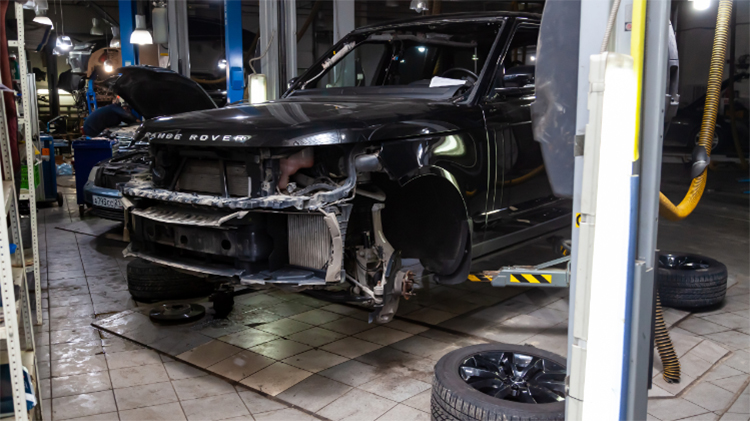5 Tips for Buying Auto Parts

When it comes to repairing or upgrading your vehicle, buying auto parts can be a cost-effective and sustainable option. However, it's essential to approach the process with caution and knowledge to ensure you get the right parts in good
condition.
In this blog, we will provide you with five valuable tips for buying auto parts. These tips will help you make informed decisions, save money, and ensure the quality and compatibility of the parts.
Tip #1: Know Your Vehicle's Specifications
Before embarking on the search for auto parts, it's crucial to have a clear understanding of your vehicle's specifications. This includes knowing the make, model, year, and any specific variations or trim levels. Having this information readily available will help you identify the correct parts and avoid compatibility issues. Refer to your vehicle's owner's manual or consult with a trusted mechanic to ensure accuracy.
Tip #2: Research and Verify the Seller
When purchasing
auto parts, it's essential to research and verify the seller's reputation and credibility. Look for reputable sellers or salvage yards with positive customer reviews and a track record of providing quality parts. Check if the seller offers warranties or return policies to protect your investment. Buying from reliable sources increases the likelihood of receiving genuine
OEM parts in good working condition.
Tip #3: Inspect the Parts Thoroughly
Before finalizing your purchase, thoroughly inspect the auto parts for any signs of damage, wear, or corrosion. Check for cracks, rust, or excessive wear that may affect the part's functionality. If possible, physically examine the parts or request detailed photographs from the seller. Additionally, inquire about the part's history, such as how long it has been and its maintenance record. A careful inspection will help you avoid buying substandard or unreliable components.
Tip #4: Consider Mileage and Age
When buying auto parts, it's important to consider the mileage and age of the parts. Generally, newer parts with lower mileage are preferable as they tend to have less wear and tear. However, certain components, like body panels or interior parts, may still be in good condition even with higher mileage. Evaluate the overall condition of the parts, balancing mileage and age, to make an informed decision about their suitability for your vehicle.
Tip #5: Compare Prices and Shop Around
To ensure you're getting the best deal, take the time to compare prices from different sellers or salvage yards. While affordability is a factor, prioritize quality and reliability over the lowest price. Remember, it's better to spend a little more for a well-maintained auto part than to deal with the consequences of a faulty or incompatible component. Shop around and explore multiple options to find the right balance between cost and quality.
Conclusion
Buying auto parts can be a smart and economical choice for maintaining or repairing your vehicle. By following these tips you can make informed decisions and secure high-quality parts. Remember, when purchasing auto parts, opting for genuine OEM parts whenever possible ensures the best compatibility and performance.
Return to Blog